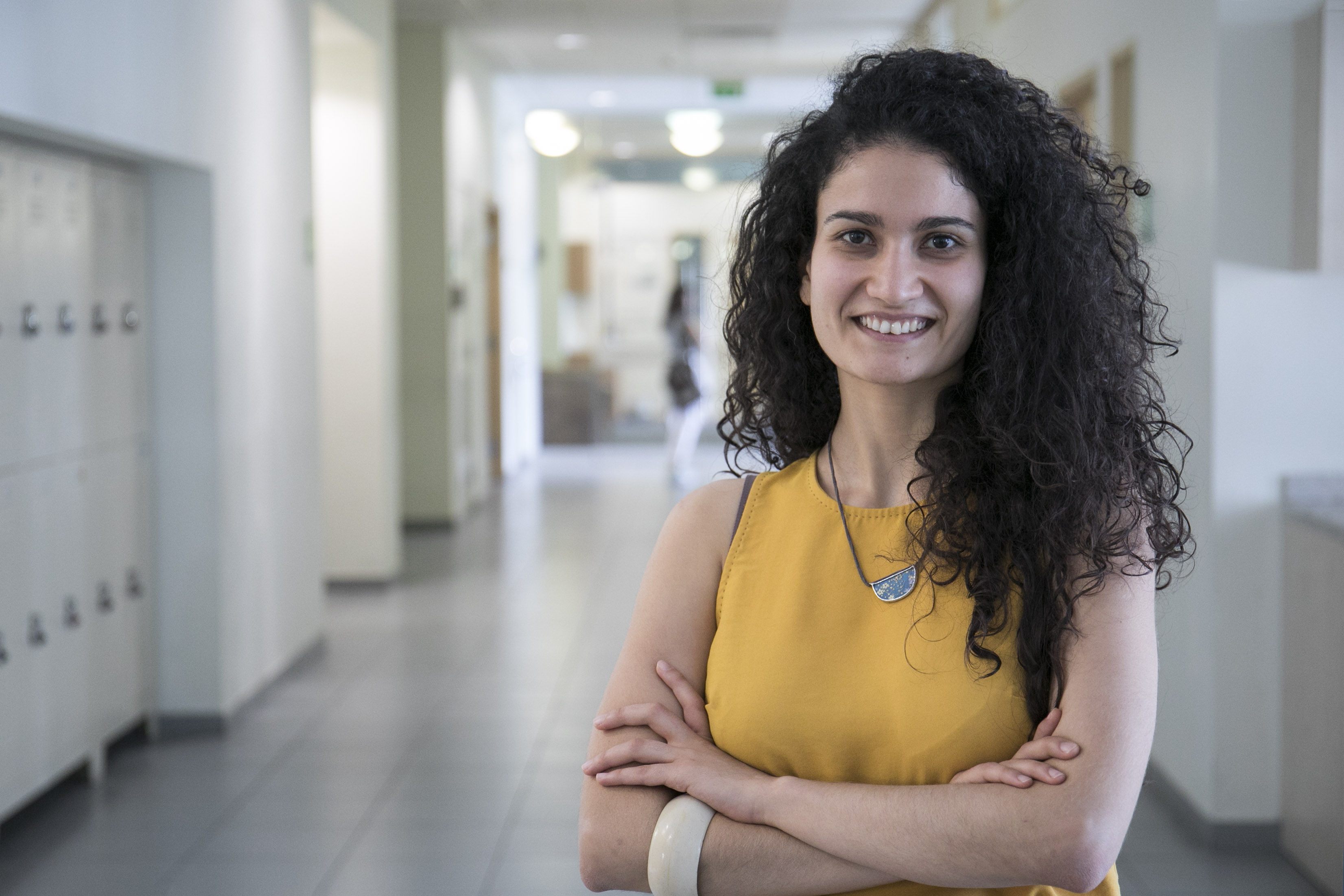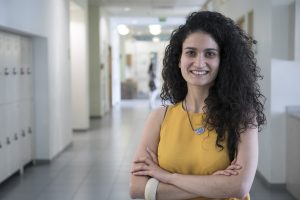
Alumni Story: An Interview with Dr. Lilit Nersisyan, CSE Adjunct Lecturer
4 min readAUA alumna Dr. Lilit Nersisyan (CIS ’13) recently sat down with AUA to discuss life, work and returning to her alma mater.
 How did you choose your current profession? Why did you choose to study at AUA?
How did you choose your current profession? Why did you choose to study at AUA?
At the time that I applied to AUA’s master’s program in computer science, I was already in the first year of my master’s degree in biotechnology. At the same time, I had started bioinformatics research at the Institute of Molecular Biology and was dealing with Python scripts to model a protein 3D structure. Modifying Python codes without knowing what was actually written was painful. Searching Wikipedia to find out what a computer actually was was also not pleasant. I
constantly felt the need to get a computer science education to pair with my interest in bioinformatics. On the other hand, my friends and relatives were extremely worried about my profession; science was not showing much hope in Armenia, so they all advised me to get a “normal” profession. So that was it, I gave it a try. I don’t remember thinking about anything other than AUA; my friends studying there were happy with the university, and it was an obvious choice for me.
In what way did AUA impact your choice of profession?
AUA has enhanced my skills in bioinformatics in several aspects. On one hand, I acquired a math and algorithmic background which is a must for a bioinformatician; on the other hand, I gained skills in software development and have already implemented and released a few bioinformatics software packages. AUA helped me dive into a wide range of interdisciplinary bioinformatics. I used my main background in biology and extended it to algorithms and software development, and finally to commercialization. Frankly speaking, there was a time when I was thinking about switching to computer science and forgetting about biology completely. I’m happy that thought soon left me. Due to modern day opportunities to work remotely while still pursuing your dream from your own country, I remained in my field and am now fully engaged in what I love doing: bioinformatics.
Tell us a little bit about your experience as an AUA faculty member. How do you like it?
I started as a teaching assistant and am now an instructor for the “Intro to Biosciences” course, which is co-instructed by Dr. Arsen Arakelyan. This made my job a lot easier, both because there was a ready program in place and because I was already familiar with his teaching style and had learned a lot from him before instructing my first class. I was excited in the beginning. I spent a lot of time developing deductive methods to enhance visual understanding of the subject. I love that at AUA you are free to choose whatever style of teaching you prefer. However, after my first try, I understood that there were still many things I needed to learn and that being a successful lecturer was not an easy job. One of the biggest challenges is that the class is extremely diverse, with students coming from different backgrounds, having different preferences in life, and different styles of learning. Some prefer visual methods, while others need more explanation; some students like getting involved in class discussions, while others prefer learning alone; some want to get deep into the subject, while others just want to get the main message. For me, the solution is to have a mixed style of teaching so that everybody benefits, but there is still a long way to go until I feel I’m good at what I’m doing. The greatest reward for me is when students ask questions, particularly tricky ones. It shows that they’ve given the topic proper thought. But the questions I don’t have the answers to are the best; those give me homework after each class to go and revise my knowledge. The first time you say “I don’t know” is difficult, but then it comes naturally. I learn a lot while lecturing – I hope the students also benefit from the classes the way I do.
A PhD is among your recent achievements. Tell us a bit about the program, your impressions and feelings upon graduation.
I did my PhD research in the group of bioinformatics at the Institute of Molecular Biology NAS Armenia, under the supervision of Dr. Arsen Arakelyan. Due to the scientific and organizational support of our German collaborators, I defended at the University of Leipzig in September 2017. The study was about the development and applications of computational methods to boost studies in an exciting topic of molecular biology: telomeres. These are the ends of our chromosomes that get shorter as we age. Telomeres are also implicated in cancer. Our approach was aimed at the efficient use of biological “Big Data” to enhance our understanding of the role of telomeres in cancer and ageing. I spent quite a lot of time getting ready for the defense day and had received valuable comments and advice about my talk beforehand, and it seemed to pay off. I felt quite happy during and after the defense, which is a good sign. Regarding what I feel after graduation, there is not much to say; I feel relieved and happy, but honestly speaking, this felt like just another step on my path. Although, I do have a couple of badges with “Dr. Lilit Nersisyan” engraved on them, and my friends still joke with me about my new “status.”
